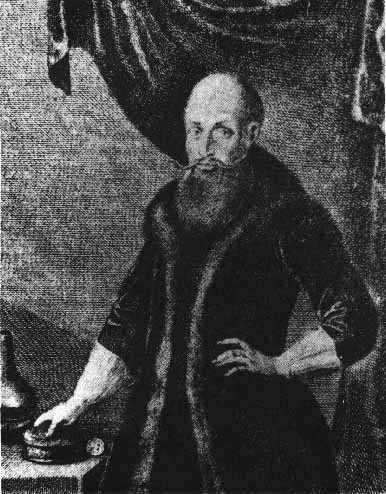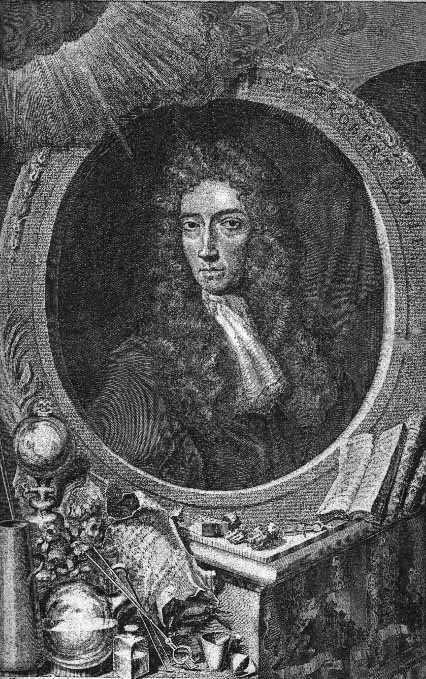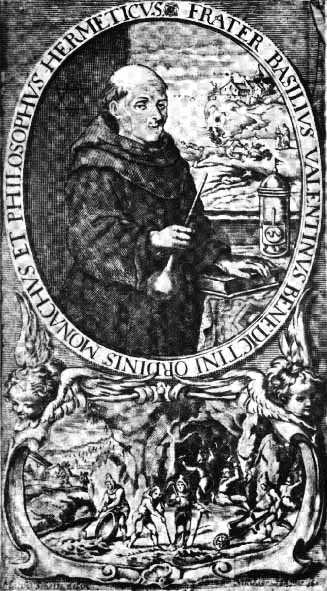European Alchemical History
 One person who people do not associate with alchemy is the famous scientist Isaac Newton (1642 -1727). It was not known that Newton was a achemist until 1936, approximately two centuries after his death. In 1936, John Maynard Keynes bought some of Newton's papers, and told the world about Newton's other side, his more 'irrational' side. Some scholars such as Robert Westfall and Betty Jo Dobbs found Newton's interest in alchemy to be essential to his view of the natural world. They also see Newton as being influenced by the Hermetic movements of his time. An alchemist who died shortly before Isaac Newton was born by the name of Micheal Sendivogius (1556-1636), who is pictured below, attracted Newton's attention. Sendivogius thought there was a 'secret food of life' which he discusses below:
One person who people do not associate with alchemy is the famous scientist Isaac Newton (1642 -1727). It was not known that Newton was a achemist until 1936, approximately two centuries after his death. In 1936, John Maynard Keynes bought some of Newton's papers, and told the world about Newton's other side, his more 'irrational' side. Some scholars such as Robert Westfall and Betty Jo Dobbs found Newton's interest in alchemy to be essential to his view of the natural world. They also see Newton as being influenced by the Hermetic movements of his time. An alchemist who died shortly before Isaac Newton was born by the name of Micheal Sendivogius (1556-1636), who is pictured below, attracted Newton's attention. Sendivogius thought there was a 'secret food of life' which he discusses below:

Man, like all other animals, dies when deprived of air, and nothing will grow in the world without the force and virtue of air, which penetrates, alters, and attracts to itself the multiplying nutrient.
 Another contemporary alchemist whose interest in alchemy would suprise most people is Robert Boyle (1626-1691) who formulated Boyle's Law (which is explained on page 338 of our Chemistry book (Chemistry; the Central Science by Brown LeMay and Bursten, Prentice Hall, Englewood Cliffs © 1994)) and whose picture is to the right. Boyle was intrigued by the origin of colors, which justifies his deep interest in alchemy. In April of 1669, Newton bought a furnace and a copy of the book of alchemical tracts entitled Theatrum Chemicum. He also bought Secrets Reveal'd by Eirenaeus Philalethes who turned out to be an acquaintance of Robert Boyle. This book showed that "alchemy mirrored God's labours during the creation and it referred to the operations of the Stoics' animating spirit in Nature." *1*
Another contemporary alchemist whose interest in alchemy would suprise most people is Robert Boyle (1626-1691) who formulated Boyle's Law (which is explained on page 338 of our Chemistry book (Chemistry; the Central Science by Brown LeMay and Bursten, Prentice Hall, Englewood Cliffs © 1994)) and whose picture is to the right. Boyle was intrigued by the origin of colors, which justifies his deep interest in alchemy. In April of 1669, Newton bought a furnace and a copy of the book of alchemical tracts entitled Theatrum Chemicum. He also bought Secrets Reveal'd by Eirenaeus Philalethes who turned out to be an acquaintance of Robert Boyle. This book showed that "alchemy mirrored God's labours during the creation and it referred to the operations of the Stoics' animating spirit in Nature." *1*
 Newton often worked with antimony. He was influenced in his antimonical studies by a fictious monk by the name of "Basil Valentine" who wrote Triumphant Chariot of Antimony which is considered to be one of the most famous alchemical literary works ever published. This book dealt with the preparation of antimony elixirs to cure various ailments including venereal disease. Throughout his alchemical life, Newton was undoubtably looking for the secret of life by experimentation. The history of Alchemy is important in Europe, because many scientists who came up with laws and theories that are still valid today spent much of their time looking for one of two unatainable goals: Immortality, and Transmutation.
Newton often worked with antimony. He was influenced in his antimonical studies by a fictious monk by the name of "Basil Valentine" who wrote Triumphant Chariot of Antimony which is considered to be one of the most famous alchemical literary works ever published. This book dealt with the preparation of antimony elixirs to cure various ailments including venereal disease. Throughout his alchemical life, Newton was undoubtably looking for the secret of life by experimentation. The history of Alchemy is important in Europe, because many scientists who came up with laws and theories that are still valid today spent much of their time looking for one of two unatainable goals: Immortality, and Transmutation.
*1* From The Norton History of Chemistry by William H Brock, W.W. Norton & Co., N.Y. © 1992
Much of my research for this page was from From The Norton History of Chemistry by William H Brock, W.W. Norton & Co., N.Y. © 1992, and the images are courtesy of The Levity Website. One person who people do not associate with alchemy is the famous scientist Isaac Newton (1642 -1727). It was not known that Newton was a achemist until 1936, approximately two centuries after his death. In 1936, John Maynard Keynes bought some of Newton's papers, and told the world about Newton's other side, his more 'irrational' side. Some scholars such as Robert Westfall and Betty Jo Dobbs found Newton's interest in alchemy to be essential to his view of the natural world. They also see Newton as being influenced by the Hermetic movements of his time. An alchemist who died shortly before Isaac Newton was born by the name of Micheal Sendivogius (1556-1636), who is pictured below, attracted Newton's attention. Sendivogius thought there was a 'secret food of life' which he discusses below:
One person who people do not associate with alchemy is the famous scientist Isaac Newton (1642 -1727). It was not known that Newton was a achemist until 1936, approximately two centuries after his death. In 1936, John Maynard Keynes bought some of Newton's papers, and told the world about Newton's other side, his more 'irrational' side. Some scholars such as Robert Westfall and Betty Jo Dobbs found Newton's interest in alchemy to be essential to his view of the natural world. They also see Newton as being influenced by the Hermetic movements of his time. An alchemist who died shortly before Isaac Newton was born by the name of Micheal Sendivogius (1556-1636), who is pictured below, attracted Newton's attention. Sendivogius thought there was a 'secret food of life' which he discusses below:


